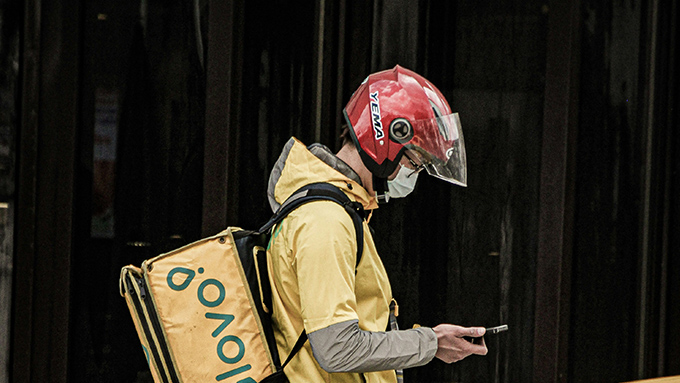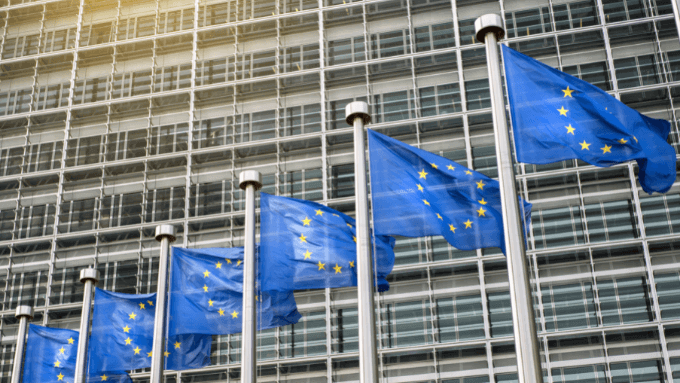Excessive Pricing
Introduction
Excessive pricing is one of the highly debated topics in competition law. In brief, it could be defined as the designated price that is consistently higher than the fair price in the market. It is considered as a type of unfair pricing. Excessive pricing is interpreted differently in various legal systems, especially in the European Union (“EU”) and United Stated of America (“USA”). In the USA, excessive pricing is not considered as an abuse; whereas, in the EU, the competition authority in various cases considers it to be an abuse under Article 102(a) of the Treaty on the Functioning of the European Union (“TFEU”). Turkish competition law maintains a parallel stance as compared to EU practice.
Excessive Pricing
Excessive pricing could be both exclusionary and exploitative. When an undertaking resorts to excessive pricing with an aim to weaken its competitors’ position in the market, this action is regarded as exclusionary. This kind of behavior is mostly seen in vertical relationships. However, exploitative excessive pricing has a direct effect on customers. This direct effect is also considered to be grounds to accept excessive pricing as abusive behavior. Excessive pricing is accepted as a manner in which a monopolist undertaking abuses its dominant position. Even though it is considered as an abuse in EU and Turkish practice, excessive pricing is not regarded as a clear manner of abuse in each jurisdiction, there are certain conditions under which competition authorities must adhere to throughout their investigations.
When EU and Turkish practice is compared, one of the major differences lies in the wording of Article 102(a) of the TFEU and Article 6 of the Act on the Protection of Competition numbered 4054 (“Act”). Article 102(a) of the TFEU provides that imposing, directly or indirectly, unfair purchase or selling prices shall be considered as an abuse of an undertaking in a dominant position. Under EU practice, excessive pricing is interpreted under this Article. On the other hand, Article 6 of the Act, which is the equivalent of Article 102, does not contain similar wording. However, as Article 6 lists types of abuses by way of illustration, it is considered, in practice, that excessive pricing is an abuse that should be evaluated under Article 6.
In practice, there are differing views about excessive pricing and the conditions that are to be considered as abusive behavior. Excessive pricing has an unbreakable connection with monopoly and dominant position. In this respect, one of the views is that the prohibition of excessive pricing would also mean preventing an undertaking in a dominant position to maximize its profit. This view also points out that the supra-monopoly prices shall be considered as unfair[1]. Another aspect debated in practice is whether competition authorities would be able to monitor the constant increases in prices. It is also questioned whether the competition authorities are the right instrument to deal with excessive pricing[2].
EU Practice
The dominant view in the EU doctrine points out that exploitative excessive pricing, which directly manipulates and damages the customer, shall be interpreted under Article 102 (a). The first decision in which the European Commission (“Commission”) has evaluated excessive pricing is the General Motors decision[3]. The Commission, in its decision, considered a price that is excessive in relation to the economic value of the service provided as abusive.
Following the Commission’s decision, excessive pricing is, theoretically, established as abuse. However, many scholars believe that the Commission is reluctant to interfere with unfair prices[4], and is more amenable to investigate exclusionary abuses[5].
Other decisions in which excessive prices are analyzed are the United Brands decision[6], Bodson decision[7], Deutsche Post decision[8], SACEM decision[9], Helsingborg decision[10], and Rambus decision[11]. All of these listed cases put forth that the Commission and EU Courts evaluated excessive prices in markets where there is an entrenched dominant position; General Motors and Deutsche Post were legal monopolies, Bodson and Rambus were in dominant positions and, finally, SACEM and Helsingborg were national monopolies. The exception was the United Brands case; however, the Court did not decide that there was excessive pricing[12]. It is stated that excessive prices are considered in markets where new entry and expansion was unlikely to increase as a result of high prices and profits due to strong market barriers.
The recent development with regard to excessive pricing considers drug prices in the pharmaceutical industry. On 15 May 2017, the Commission opened an investigation into Aspen Pharmacare (“Aspen”) over claims of excessive pricing; this is the first time that the Commission ever questioned a drug company concerning unjustified prices. The Commission stated that it would investigate whether Aspen is breaking EU competition rules by enforcing excessive pricing on its medicines.
Turkish Practice
As provided, above, Article 6 of the Act does not suggest the clear wording of Article 102(a) of the TFEU; however, the first paragraph of Article 6 of the Act, stating that “the abuse, by one or more undertakings, of their dominant position in a market for goods or services within the whole or a part of the country on their own or through agreements with others or through concerted practices, is illegal and prohibited,” is regarded as legal grounds to consider excessive pricing as an abuse of dominant position.
The Turkish competition authority in the Belko decision[13] investigated allegations against Belko, which is an undertaking founded and controlled by the municipality and is engaged in import and the sale of coal; it is important to note that Belko owned the right to import and sell coal, exclusively. As a result of its investigation, Competition Board (“Board”) established that there was abuse. This decision is important to portray the Board’s point of view toward excessive pricing. The Board emphasized that it is important to differentiate in the market in which excessive pricing should be considered as abuse. In the Belko decision, the Board took notice of Belko’s exclusive right granted by law to import and sell, the market’s position where new entry was not possible, and the lack of regulation in order to prevent pricing exploitation, and that the low level of product demanded elasticity[14].
Another decision of the Board that was subject to excessive pricing, was the Botaş-Ego-İzdaş-İgdaş decision[15]. In this decision, the Board provided that in terms of the undertakings which are subject to pricing regulation, excessive pricing should not be regarded as abuse. It could be concluded that the Board was not in favor of analyzing excessive pricing for regulated markets.
It is clear that the Turkish competition authority finds excessive pricing as a type of abuse. However, it embraced different levels considering regulated markets and the presence of a monopoly.
Recently, the Board initiated an investigation following its preliminary inquiry against Sahibinden Bilgi Teknolojileri Pazarlama ve Ticareti A.Ş (“Sahibinden”) engaged in e-commerce on the grounds that it abused its dominant position through excessive pricing. This decision would be the first in which the Board would evaluate excessive pricing in the e-commerce sector.
Conclusion
Excessive pricing, which is a price consistently above the competitive level, is considered as an abuse under both Article 102(a) of the TFEU and Article 6 of the Act. Both the Commission and the Board seek for either a monopoly or an entrenched dominant position to assess excessive pricing. It is also clear that the Board is reluctant to evaluate pricing allegations in regulated markets.
The two new investigations against Aspen and Sahibinden will show the Commission’s and the Board’s points of view on excessive pricing in unique sectors, such as the pharmaceutical industry and e-commerce sectors.
[1] Ünal, Çiğdem, Aşırı Fiyat Kavramı ve Aşırı Fiyatlama Davranışının Rekabet Hukukundaki Yeri, Ankara 2009, p. 11,12.
[2] Ünal, p. 12.
[3] Judgment of the Court of 13 November 1975. - General Motors Continental NV v Commission of the European Communities. - Case 26-75;
http://eur-lex.europa.eu/legal-content/EN/TXT/PDF/?uri=CELEX:61975CJ0026&from=EN
[4] Ünal, p. 44.
[5] OECD Policy Roundtables, Excessive prices, 2011; http://www.oecd.org/competition/abuse/49604207.pdf
[6] United Brands Co. v Commission Case C-27/76, 1978.
[7] Corinne Bodson v SA Pompes funèbres des régions libérées Case 30/87, 1988.
[8] COMP/36.915 – Deutsche Post AG – Interception of cross-border mail, 2001.
[9] F. Lucazeau v Societé des Auteurs, Compositeurs et Editeurs de Musique Cases 110/88, 241/88 & 242/88,
1989.
[10] COMP/36.568 – Scandlines Sverige AB v Port of Helsingborg, 2004.
[11] COMP/38.636 – Rambus; http://ec.europa.eu/competition/antitrust/cases/dec_docs/38636/38636_1203_1.pdf
[12] For more detailed information see, OECD Policy Roundtables, Excessive prices, 2011, par. 18-42; http://www.oecd.org/competition/abuse/49604207.pdf
[13] Decision dated 06.04.2001 and numbered 01-17/150-39. http://www.rekabet.gov.tr/File/?path=ROOT%2f1%2fDocuments%2fGerek%25c3%25a7eli%2bKurul%2bKarar%25c4%25b1%2fkarar3048.pdf
[14] Ünal, p. 68.
[15] Decision dated 08.03.2002 and numbered 02-13/127-54; http://www.rekabet.gov.tr/File/?path=ROOT%2f1%2fDocuments%2fGerek%25c3%25a7eli%2bKurul%2bKarar%25c4%25b1%2fkarar532.pdf
All rights of this article are reserved. This article may not be used, reproduced, copied, published, distributed, or otherwise disseminated without quotation or Erdem & Erdem Law Firm's written consent. Any content created without citing the resource or Erdem & Erdem Law Firm’s written consent is regularly tracked, and legal action will be taken in case of violation.
Other Contents

Mergers and acquisitions are among the types of transactions that are subject to intensive scrutiny by competition authorities. As a rule, competition authorities only subject transactions that exceed certain turnover thresholds and result in a change of control to merger…

The U.S. District Court for the District of Columbia (“Court”) issued its memorandum opinion (Memorandum Opinion) on November 18, 2025, in the antitrust case (“Case”) between the Federal Trade Commission (“FTC”) and Meta Platforms Inc. (“Meta”). The FTC alleges that Meta monopolized the market…

No-poach agreements, which have become one of the most prominent concepts in global competition law in recent years, are defined in the Glossary of Competition Terms as “agreements, whether direct or indirect, whereby one undertaking agrees not to make job offers to, or hire, the employees of another...

The Competition Board (“Board”) has broad powers to request information from undertakings. The legal basis for this authority is provided by Article 14 of Law No. 4054 on the Protection of Competition (“Law No. 4054”). Under this provision, the Board may request any information it deems necessary from public...

Competition authorities around the world have increasingly focused on labor market infringements under competition law, issuing new regulations and guidance recently. Notable examples include the U.S. Department of Justice and Federal Trade Commission’s joint guidance, the Japanese Fair Trade Commission’s...

Chapter 8 of the General Data Protection Regulation (“GDPR”) sets out the legal remedies available to data subjects in the event of a breach of their rights under the GDPR. Accordingly, each data subject has a right to lodge a complaint with the supervisory authority of the Member State in which they reside, work...

Mergers and acquisitions play a critical role in shaping the competitive structure of the market. Although such transactions can lead to positive outcomes such as the provision of products and services at lower prices, the development of new products and technologies, and improvements in quality, they may also...

Technology and the opportunities it brings undoubtedly play a key role in strengthening the competitiveness of market players. In this context, pricing algorithms that enable undertakings to monitor publicly available prices and optimize their own pricing strategies have become widely used, especially by digital platforms...

The Regulation on Fines to Apply in Cases of Agreements, Concerted Practices and Decisions Restricting Competition, and Abuse of Dominant Position (“Former Regulation on Fines”), which entered into force upon its publication in the Official Gazette dated February 15, 2009 and numbered 27142, was...

In the past years, the Turkish Competition Board (“Board”) has closely monitored the activities of undertakings operating in the retail sector. As a result of the Board’s record of administrative fines, horizontal type of violations in the retail sector have been highly publicized. Vertical violations such as resale price...

In recent years, numerous automobile manufacturers have announced their goals to reduce carbon emissions, with many brands setting net-zero carbon targets spanning from production processes to the lifecycle of their vehicles. While ongoing debates persist regarding the significantly higher carbon footprint of...

Under Article 15 of Law No. 4054 on the Protection of Competition (“Law No. 4054”), the Competition Board (“Board”) may conduct on-site inspections at the undertakings’ premises when it deems necessary in fulfilling the duties assigned to it. During the on-site inspection, the Board is authorized to examine all...

Agreements and information exchanges between undertakings in labor markets have recently been examined in various preliminary investigations and investigations initiated by the Turkish Competition Authority (“Authority”). Following the investigations in which some undertakings were subject to...

The Turkish Competition Board’s (Board) decision regarding the acquisition of the international road transport business line of Ekol Lojistik AŞ (Ekol) by DFDS A/S (DFDS) has been one of the most prominent transactions on the competition law agenda recently...

The Competition Board (“Board”) has broad powers to request information from undertakings. The Board’s authority to request information arises from Article 14 of the Law No. 4054 on the Protection of Competition (“Law No. 4054”). Under the relevant provision, the Board may request any information it deems...

Doğuş Otomotiv Servis ve Ticaret A.Ş. (Doğuş) applied to the Turkish Competition Authority for an exemption for the practice of recommending basic wages to be applied to sales and after-sales service employees of its authorized dealers and distributors...

Access to Instagram was blocked ex officio by the Information and Communication Technologies Authority (ICTA) as of 2.08.2024. Under Article 8 of Law No. 5651 on the Regulation of Publications on the Internet and Combating Crimes Committed Through These Publications, ICTA can issue an ex officio access...

It is well known that agreements between employer undertakings with regards to their employees, such as wage-fixing and non-poaching agreements, along with competitively sensitive information exchanges have been under the scrutiny of competition authorities all over the world, including the Turkish Competition...

Automotive is one of the sectors in which the world’s most significant investments are made. The Competition Board (“Board”) has been closely interested in the automotive sector over the years and has conducted various examinations and studies in this field...

Competition authorities around the world continue unabated to investigate competition concerns arising from data collection and processing activities of digital platforms and impose severe sanctions as a result...





The startup ecosystem in Turkey has experienced notable growth in recent years. In the last quarter of 2023, 81 startups secured a combined investment of around 60 million dollars. While the number of investments remained consistent when comparing the third quarter periods of 2022-2023, there was a decrease...

Hub and Spoke cartel is a type of violation that is not clearly defined and regulated under Law No. 4054 on the Protection of Competition (“Law No. 4054”). Decisional practices of foreign competition authorities, particularly the UK Competition and Markets Authority’s decisions (“CMA”), are instructive concerning...

The Competition Board ("Board") made an addition to its line of decisions on resale price maintenance with its decision on Sunny Elektronik Sanayi ve Ticaret A.Ş. ("Sunny") . In its decision, the Board thoroughly examined the allegations regarding Sunny's involvement in maintaining resale prices and restricting...

It is observed that the Competition Authority (“Authority”) has recently scrutinized various industries such as fast-moving consumer goods, labor market, pharmaceuticals, and cement. When the reasoned decisions of the Competition Board (“Board”) published in October are examined, it can be seen that the...

Jules Verne says, “Everything on earth has a limited lifespan, nothing that will exist forever can be created by human hands”. Perhaps change is the only constant concept in all our lives. Despite two major world wars and countless periods of crisis, humanity has been undergoing a great change and...

At the meeting of the Fédération Internationale de Football Association (“FIFA”) held on 16 December 2022, the FIFA Council approved the FIFA Football Agents Regulations (“FFAR”). In the FFAR, various amendments have been made, such as the introduction of a maximum service fee limit that football agents are...

Resale Price Maintenance (RPM) is still considered a hardcore restriction under the recently revised Vertical Block Exemption Regulation (VBER), which means that it cannot benefit from a statutory exemption under Article 101(1) TFEU, unlike certain other types of vertical agreements. However, it has been debated...

In competition law, it is important to accurately determine the concept of undertaking, especially in terms of mergers and acquisitions. Therefore, the concept of economic entity aims to reveal the economic units covered by the undertakings. The relationship between the concept of economic entity and family ties comes...

In these days when the Competition Board (“Board”) frequently imposes administrative fines for preventing on-site inspections and both the Competition Authority (“Authority”) and undertakings take legal and technical measures regarding on-site inspections, a striking development has occurred. In its decision...

Online advertising has become an important source for businesses for promoting products and services and meeting consumers, as a result of the rapid development of information technologies and increase in the use of internet. Delivering targeted messages to consumers at the right time through the digital...

Selective distribution systems refer to a type of distribution system in which suppliers commit to selling the contracted goods or services directly or indirectly to distributors selected based on specified criteria, while the distributors commit not to sell the said goods or services to unauthorized...

Fast-moving consumer goods is undoubtedly one of the sectors that the Competition Authority has been working most intensively since the COVID 19 pandemic. Among the most important developments of this period was the Sector Inquiry initiated on Fast Moving Consumer Goods (“FMCG”) Retailing...

In the decision of the Constitutional Court ("Constitutional Court" or "Court") dated 09.11.2022, numbered 2020/67 E. 2022/139 K. (the "Decision"), the annulment of certain articles of the Law Amending the Law on the Protection of Competition No. 4054 ("Law No. 7246") was requested...

In Turkish competition law, certain types of mergers and acquisitions are subject to Turkish Competition Board’s (“Board”) approval in order to gain legal validity. Pursuant to Article 7 of the Law No. 4054 on the Protection of Competition (“Law No. 4054”), the Board is competent to define mergers and acquisitions...

Recently, the Competition Board (the Board) had imposed administrative fines on banks and financial institutions for failing to respond to the request for information within the scope of a preliminary investigation.[i] The request for information that lays the groundwork for the administrative fine imposed by...

Amazon, a world-famous company, is an e-commerce company that operates the world’s largest online shopping platform. In the backstage, Amazon is a data-driven company whose retail decisions are mostly driven by automated systems, fueled by the relevant market data. That being said, Amazon has a dual...

The right to make on-site inspections is one of the Competition Board’s (“Board”) most important tools for revealing whether Law No. 4054 on the Protection of Competition (“Law No. 4054”) has been violated. The effective use of this authority is quite important in terms of obtaining fruitful results from...

“Harese” is an interesting Arabic word. There is a thorn that camels love very much in the desert. The camel eats the thorn with great greed. So much so that, its mouth bleeds as it eats, but it doesn't stop eating. The taste of the thorn is mixed with the salty taste of its own blood. This mixed taste drives the camel...

Turkey’s leading pay television service provider, Krea İçerik Hizmetleri ve Prodüksiyon A.Ş. (“Digiturk”), is frequently the subject of complaints made to the Competition Authority (“Authority”). In fact, the Competition Board (“Board”) issues a new decision about Digiturk almost every year. In these decisions...

The French Competition Authority (Autorité de la Concurrence), within the scope of the competition law proceeding initiated upon the complaint of Criteo SA (“Criteo”), accepted the commitments proposed by Meta Platforms Inc., Meta Platforms Ireland Ltd., and Facebook France...

While the scope of Competition Board’s (“Board”) power to conduct on-site inspections has increased with the introduction of Guidelines on Examination of Digital Data during On-site Inspections (“Guidelines”), nowadays the amount of monetary fines imposed on undertakings continue to...

The hub and spoke cartel, which is a relatively new type of violation in terms of Turkish competition law, is defined as the indirect exchange of information between two independent undertakings which are horizontal competitors on the supplier or retailer level, through another undertaking...

The settlement mechanism has only recently been introduced to Turkish competition law practice. It entered into force with the amendment made to the Law on the Protection of Competition (“Law”) numbered 4054 on 16.06.2020, and has been in effect for less than two years. In this relatively...

Due to their increasing share in the economy and rapid growth rate, e-marketplace platforms have come under the increasing scrutiny of the Turkish Competition Authority (“Authority”) as well as many competition authorities around the world...

Pursuant to the Amendment Communiqué Concerning the Mergers and Acquisitions Requiring the Competition Board’s Approval (“Amending Communiqué”) published in the Official Gazette dated March 4th, 2022 and numbered 31768, certain amendments have been introduced...

The Competition Board (“Board”) has recently published a reasoned decision in which it evaluated BSH Ev Aletleri Sanayi ve Ticaret A.Ş.’s (“BSH”) request for negative clearance or exemption with regard to its practice of prohibiting authorized dealers from making sales through online marketplaces...

Shahmaran, a Mesopotamian myth, is believed to take place in Tarsus. According to the myth, the shah of snakes is the immortal and omniscient "Shahmaran." Shahmaran is described as a beautiful woman living in her cave with her snakes...


During the COVID-19 pandemic, competitive concerns about the pricing behavior of chain markets, manufacturers, and wholesalers engaged in the retail trade of food and cleaning supplies led to an investigation by...

When the past decisions and the recent decisions of the Competition Board (“Board”) are examined, a significant increase can be observed in the number of decisions where the Board found hindrance or obstruction of on-site inspections. This situation shows that...

The European Commission began investigating the collusive behavior of Credit Suisse, UBS, Barclays, RBS, and HSBC in the Foreign Exchange (forex) spot trading market in 2019. With the recent press release dated 02.12.2021, the Commission announced that the case is now closed...


Digitalization, in particular, necessitates the rewriting of competition law rules. Competition law is at the center all questions regarding e-commerce and digital platforms. The aforementioned platforms, which have become prominent due to innovations in...
















































